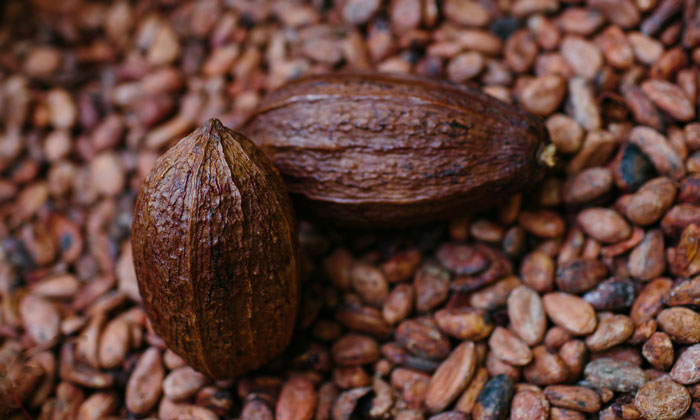Mondelēz commits to cutting emissions in Ghanan cocoa supply chain
- Like
- Digg
- Del
- Tumblr
- VKontakte
- Buffer
- Love This
- Odnoklassniki
- Meneame
- Blogger
- Amazon
- Yahoo Mail
- Gmail
- AOL
- Newsvine
- HackerNews
- Evernote
- MySpace
- Mail.ru
- Viadeo
- Line
- Comments
- Yummly
- SMS
- Viber
- Telegram
- Subscribe
- Skype
- Facebook Messenger
- Kakao
- LiveJournal
- Yammer
- Edgar
- Fintel
- Mix
- Instapaper
- Copy Link
Posted: 18 January 2018 | George Smith (New Food) | No comments yet
Chocolate manufacturer Mondelēz has said it will ramp up its efforts to work against deforestation and unsustainable farming in the world’s biggest cocoa producing nations.


CHOC-FULL: Ghana produces around 20 per cent of the world's chocolate
Mondelēz International today announced it has signed a Memorandum of Understanding with the Forestry Commission of Ghana, Ghana Cocoa Board and United Nations Development Programme (UNDP), reinforcing its commitment to reduce emissions in its cocoa supply chain across Ghana.
Through Cocoa Life, Mondelēz International’s signature sustainable cocoa sourcing program, the company said it will take a leading role in implementing projects to deliver the Ghana Cocoa Forest REDD+ Program (GCFRP) which aims at tackling deforestation and forest degradation.
“Deforestation makes up the largest part of our carbon footprint, which is why it’s so important for us to address this issue head on. Through this collaboration, we can be even more efficient in safeguarding the environment and helping cocoa farmers become resilient against climate change,” said Hubert Weber, Executive Vice President and President Europe at Mondelēz International. “This partnership builds on Cocoa Life’s ongoing forest protection efforts. It’s an exciting new chapter in our work in Ghana and fits with the commitment we made by signing the Cocoa & Forests Initiative Framework for Action at COP23.”
As one of the largest cocoa-producing countries, Ghana supplies about 20 per cent of the world’s cocoa. According to the GCFRP, Ghana also has one of the highest deforestation rates in Africa at 3.2 per cent per annum. This is primarily due to unsustainable expansion of cocoa and other agricultural crops.
Mondelēz International is contributing $5 million over five years to the GCFRP, which aims to significantly reduce the high rate of deforestation and forest degradation, as well as their associated greenhouse carbon emissions, from cocoa farming within Ghana’s High Forest Zone.
Together with these partners, Mondelēz International will execute an action plan in key Hotspot Intervention Areas, focusing on:
- Mapping all land uses, including cocoa farms
- Implementing climate smart cocoa practices to increase yields and sustainability
- Improving access to finance to foster good practices by farmers and communities
- Legislative and policy reform to support program execution
- Coordination and measurement, reporting and verification
John Peter Amewu, Minister for Lands and Natural Resources in Ghana and signatory of the Cocoa & Forests Initiative, said:“The Ghana government is promoting public-private partnerships, which are critical for sustainable economic growth in all sectors, including the forestry sector. It is, therefore, encouraging that Mondelēz International’s Cocoa Life program is partnering with government to implement an integrated landscape approach to sustainable cocoa production and forest management.
“Cocoa Life is a valuable asset to the realisation of the Joint Framework for Action under the Cocoa & Forests Initiative, as it brings on board advanced environmental protection strategies at farmer, community and national levels.”
Since 2013, Cocoa Life has worked with the Ghana Cocoa Board and UNDP to promote environmentally sustainable production practices while conserving ecosystems and natural resources in cocoa landscapes across Ghana. Mondelēz International is also a founding member of the Cocoa & Forests Initiative, in which 12 leading cocoa and chocolate companies are partnering to reduce deforestation in the cocoa supply chain.




